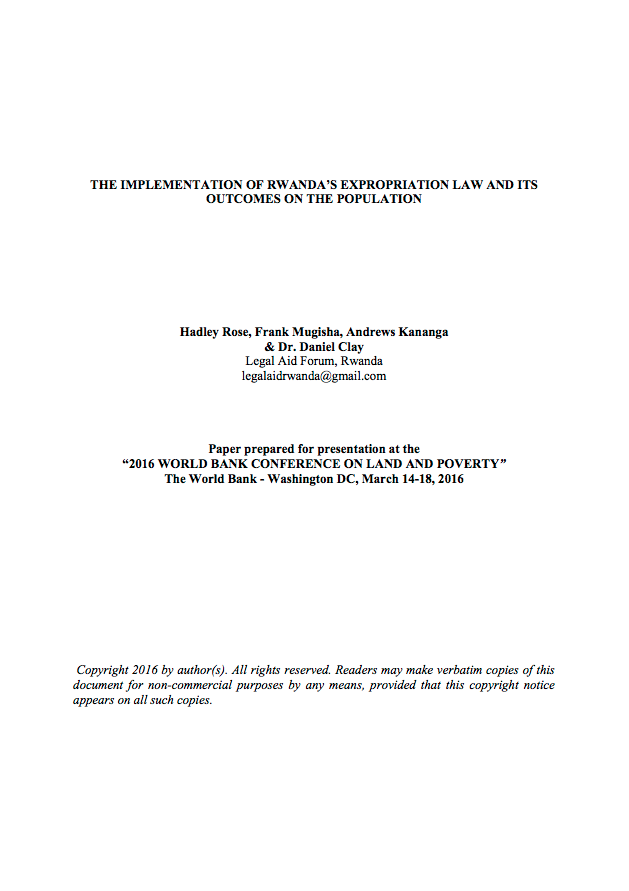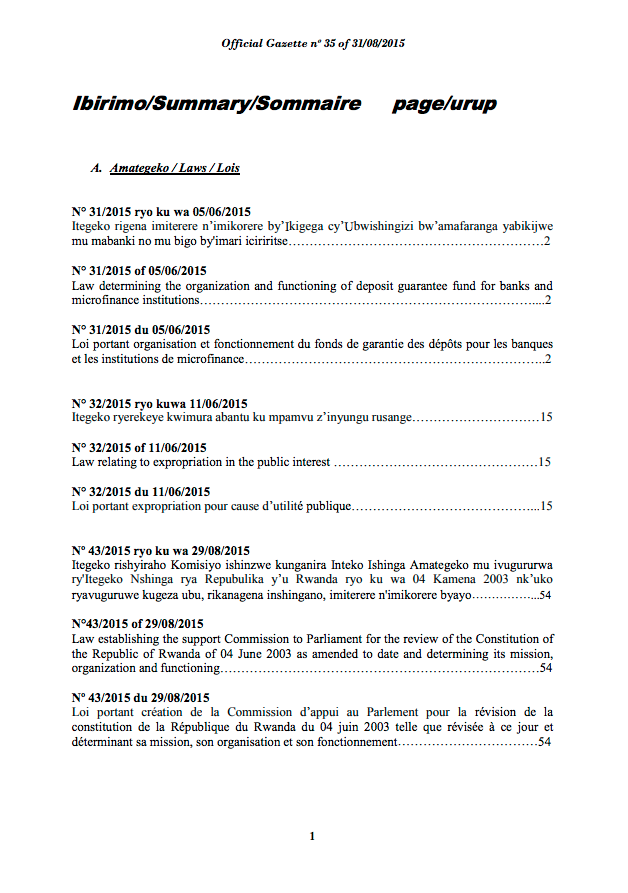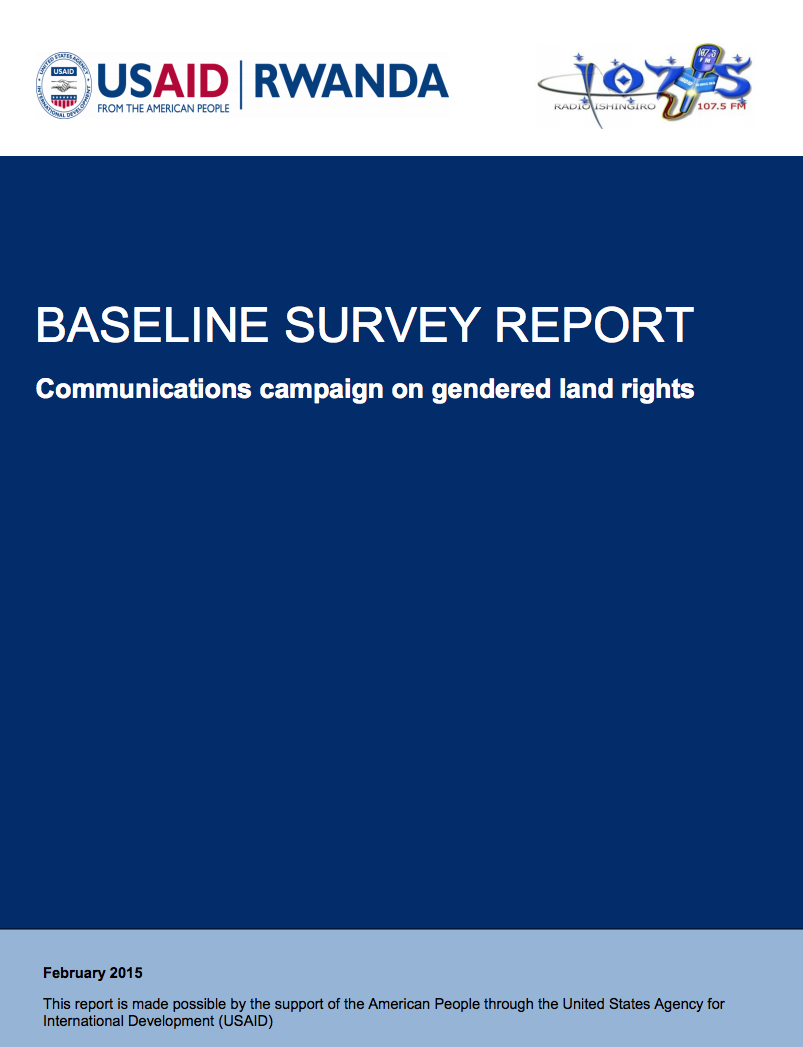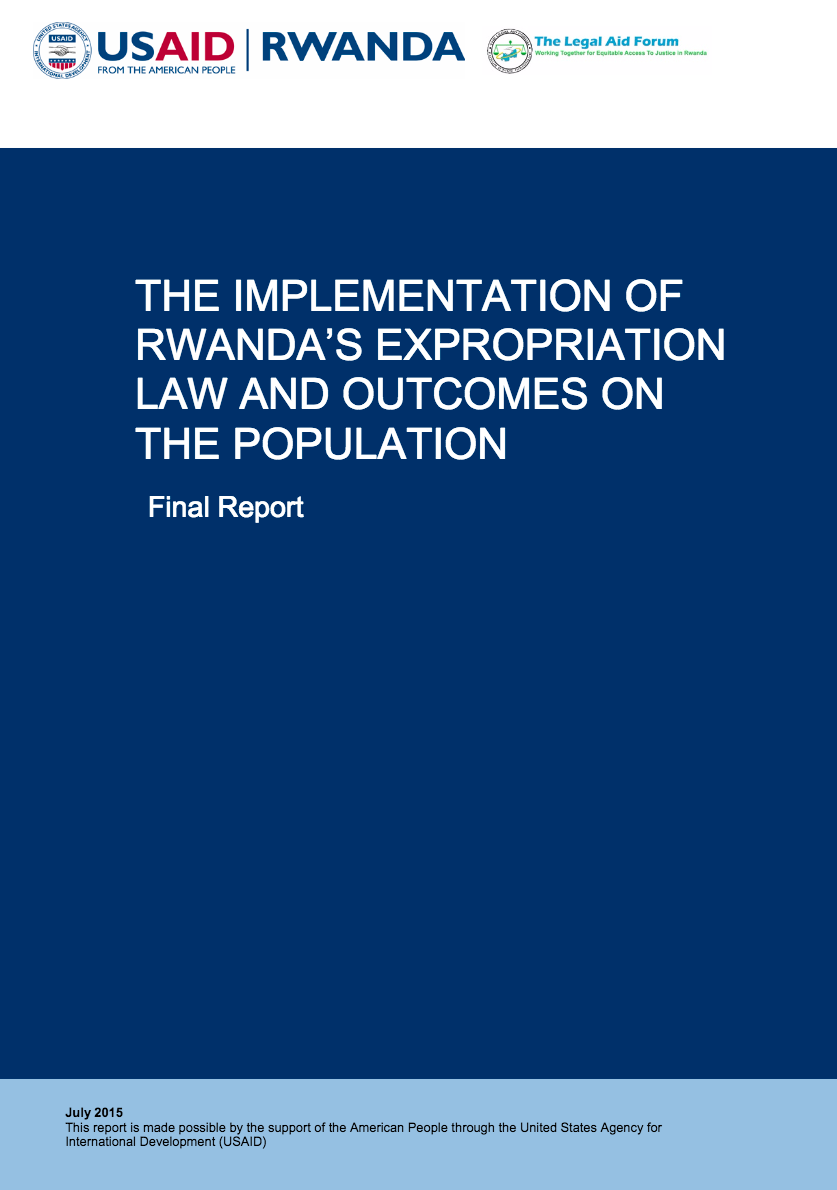The LAND Project is a five year program supported by the United States Agency for International Development (USAID). Its primary goal is strengthening the resilience of Rwandan citizens, communities and institutions and their ability to adapt to land-related economic, environmental and social changes.
Resilience is defined as “the ability to withstand or recover from difficult conditions.” It also comprises the ability of human and ecological systems to recover from shocks or difficult changes, and to transform to a better condition by responding flexibly and creatively to stress factors. In Rwanda, land tends to be one of the primary assets citizens rely on to buffer against difficult conditions and rapid change.
The project’s central objectives are twofold:
1.Increased capacity of local Rwandan institutions to generate high quality, evidence-based research on land-related issues that can be used by the Government, civil society organizations, and Rwandan citizens.
2. Increased understanding of land laws, policies, regulations, and legal judgments on land-related issues by GOR officials, local civil society organizations, research institutes and citizens.
Key outcomes of the project include:
- Holding annual National Land Research Agenda workshops to establish the research priorities of land sector stakeholders that the LAND Project will support. These workshops bring together multiple stakeholders from government, civil society and the research community;
- Supporting research on land-related issues through competitive awards to Rwandan research institutions, universities, and civil society organizations, and providing tailored capacity building assistance to improve research and advocacy capabilities;
- Offering training and other support to legal assistance providers to enhance their capacity to support women and vulnerable populations in understanding and realizing their land rights;
- Training local land authorities on the implementation of the land law and regulations.
- Carrying out research on critical land issues, including gendered land rights in practice, community rights to resources in and around protected areas, and expropriation.
- Managing a land-focused website to improve research, communications, and policy advocacy efforts that are focused on land, and to act as a vehicle for enhancing collaboration between actors working in the land sector;
- Providing organizational development support to civil society organizations supporting women’s land rights.
- Supporting innovative and coordinated communications approaches by civil society and government that enhance the knowledge of Rwandan citizens about research findings and their land rights.
Because the LAND Project is a five year endeavor, we are seeking an institution that has the interest, capacity, skills and resources to eventually take over hosting and maintenance of the website, ensuring it stays up-to-date and relevant to the land sector stakeholder community. If your organization is potentially interested in assuming management of this site, please contact us and tell us why you believe your institution would be an ideal candidate.
Members:
Resources
Displaying 16 - 20 of 149The Implementation of Rwanda’s Expropriation Law and Outcomes on the Population
Rwanda is developing at a remarkably rapid pace, and with that development has come a multitude of corresponding changes to the orientation and use of land throughout the country. In light of these changes, law n°18/2007 of 19/04/2007 relating to expropriation in the public interest was adopted to provide clear procedures for the government to follow in the taking of privately-owned land for other uses deemed to be in the public interest.
LAND Project Policy Brief: Climate Change Adaptation Within Land Use and Tenure Reforms in Rwanda
Across equatorial and east Africa, climate change is affecting the frequency, intensity
and variability of regional climate patterns.1 Changes in rainfall patterns, temperatures
and storm intensity are having significant effects on national economies, regional
infrastructure, land use and local livelihoods. These changes are forcing national and
local governments to adjust and adapt how they plan, prepare and implement day to
day operations today and larger visions for the future. The ability of governmental
Law N° 32/2015 of 11/06/2015 Relating to Expropriation in the Public Interest
Law N° 32/2015 of 11/06/2015 Relating to Expropriation in the Public Interest
Baseline Report on Gender and Land Rights
In Africa, land has an emotional and mystical value beyond the economic consideration and
represents the social security and the continuity and independence of a family. In much of rural
Africa, land constitutes the primary source from which millions of people derive their daily
livelihoods (Bhandari 2001)
1
. In sub-Saharan Africa, women contribute between 60-80% of labor
used to produce food for both household consumption and sale to agricultural production while
women’s access to and control over land in Africa remains minimal (FAO, 1998).
Policy Brief: The Implementation of Rwanda’s Expropriation Law and Outcomes on the Population
This Policy Brief summarizes the main findings and recommendations of qualitative and quantative research on implementation and outcomes of the 2007 Expropriation Law in Rwanda. Rwanda is developing at a remarkably rapid pace, and with that development has come a multitude of corresponding changes to the orientation and use of land throughout the country.






